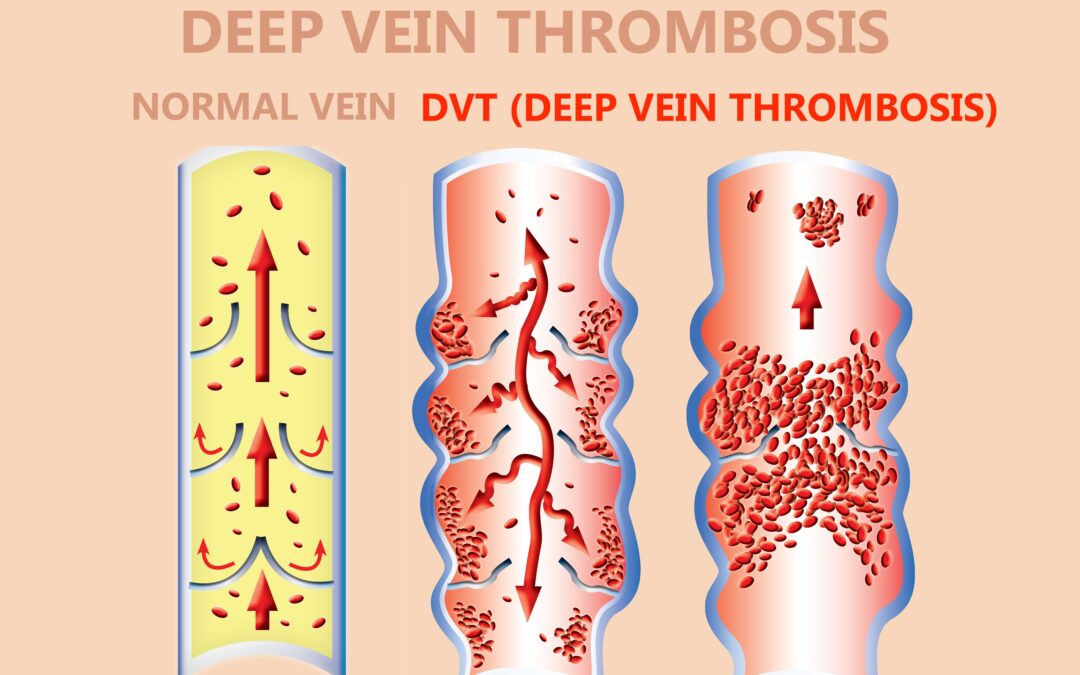Are you trying to get your FAA medical following Deep Vein Thrombosis (“DVT”)? A recent history of Deep Vein Thrombosis will require a special issuance authorization by the Federal Aviation Administration (“FAA”) in order for you to be issued an airman medical certificate. A special issuance authorization essentially works as a waiver and is a mechanism by which the Federal Air Surgeon can issue a medical certificate to an applicant who would otherwise not be qualified for airman medical certification. Considering a special issuance authorization is granted to applicants only within the discretion of the Federal Air Surgeon, you must provide medical evidence to establish for the FAA that your DVT is appropriately treated and that the risk for recurrent symptoms and/or sudden incapacitation are sufficiently mitigated for aviation safety.
The protocol for demonstrating sufficient mitigation of risk and eligibility for a special issuance authorization following a history of Deep Vein Thrombosis are detailed within the FAA’s AME Assisted Special Issuance (“AASI”) protocol. Therein, the FAA identifies that your first application for airman medical certification following a recent history of DVT must be cleared by a staff physician at the FAA’s Office of Aerospace Medicine. In other words, your Aviation Medical Examiner (“AME”) can not issue to you an airman medical certificate if you are applying for the first time after experiencing DVT. Upon review by the FAA’s staff physician, for favorable consideration of a special issuance authorization, you will need to provide documentation regarding your history of DVT as well as a current, detailed clinical progress note regarding your treatment, if any. Thereafter your first issuance of a special issuance authorization following DVT, your AME will be authorized to continue issuing to you a medical certificate, not requiring review by the FAA, if the AME is provided with documentation establishing you meet appropriate criteria.
In order to first effectively establish your eligibility for special issuance authorization following a history of DVT, you will need to produce a detailed clinical progress note from your treating physician which identifies the following:
- A discussion regarding history and symptoms;
- A discussion regarding treatment plan, if any;
- A discussion regarding prognosis;
- A discussion regarding any current labs, imaging, or other testing deemed necessary; and,
- A discussion regarding the use of medication, to include the following:
- Identification of all medication(s) used for treatment and/or prevention with comment regarding side effects, if any; and
- Discussion of tolerance of the medication to include the presence or absence of side effects, any bleeding episodes requiring medical attention, and any occurrence/recurrence of deep vein thrombosis or pulmonary embolism.
The FAA will pay careful attention to the following concerns when evaluating your treating physician’s detailed, clinical progress note. The following concerns may warrant the FAA denying your application for airman medical certification:
- If you are using Coumadin (Warfarin) and more than 20% of INR values are <2.0 or >3.0;
- If you have experienced any side effects from medication or bleeding episodes requiring medical attention; or,
- If you have developed emboli, thrombosis, bleeding, or any other cardiac or neurologic conditions previously not diagnosed or reported.
Why involve a FAA attorney when you are trying to get a FAA medical with Deep Vein Thrombosis? Despite what you may hear from your AME, the medical certification process is more so a legal process than a medical process. Ensuring that your doctor is developing the proper documentation regarding your DVT, as needed, can be a difficult task. To that end, everything that is submitted to the FAA (i.e. records, statements, evaluations, etc.) goes into your airman medical file. This file is what the FAA then utilizes to evaluate whether you are eligible to hold a medical certificate. If you are later denied and wish to appeal that denial, your airman medical file becomes “Exhibit A” before the NTSB or upon reconsideration by the Federal Air Surgeon. So, a FAA attorney can evaluate your records, prepare a plan for best presentation of your case to the AME or FAA, and best argue your medical eligibility to the Federal Air Surgeon, with an eye for potential, future appeal. Furthermore, if your medical documentation is as strong as possible upon initial submission, in doing so, hopefully, you will avoid unnecessary delay. Also, if you have failed to report your DVT on your FAA medical application, a FAA medical attorney can give you counsel on how to rectify your omission.
If you are trying to get your FAA medical following a Deep Vein Thrombosis call the FAA attorneys at The Ison Law Firm. We are happy to evaluate your case and discuss with you a plan for presenting your case to your AME or the FAA. Aviation law is all we do. Nothing else.

